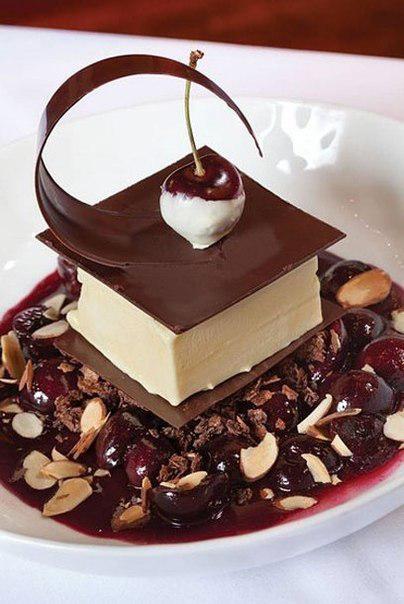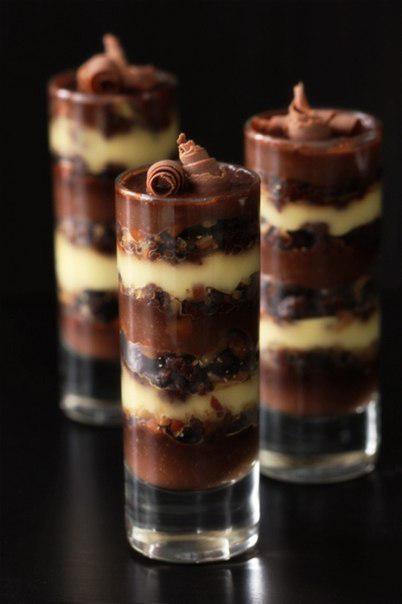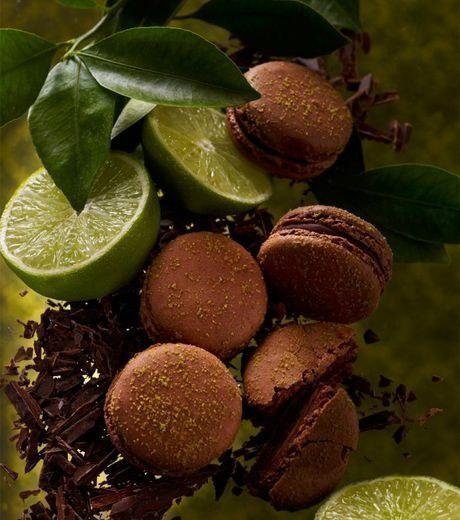1360
Chocolate, as a means of strength and vigor.

Homeland chocolate as the cacao tree, is Central and South America. Mayans and later the Aztecs for centuries was mixed, ground and roasted cocoa beans with water, and then the mixture is added hot peppers. The result is a bitter, hot frothy drink a high-fat, who drank cold.
A woman taking a bath with a cup of drinking chocolate. France, XVII century.
In the most common version of the word "chocolate" comes from the Aztec word «xocolātl» («chokolatl"), which literally means "bitter water" (Nahuatl xocolli - «bitter», ātl - «Water"). The original word xocolātl, however, is not found in any of the texts of the colonial period; its existence - a hypothesis linguists.
In Europe, the cocoa drink known since the 1520s; the first Europeans tasted it conquistador Hernán Cortés. Rather cold and bitter this drink in Europe turned to the beginning of the XVII century in a hot and sweet. Despite its popularity, the high cost of raw materials limited the consumption of hot chocolate rather narrow circle of the most wealthy people.







The modern period in the history of chocolate opened Dutchman Conrad van Guten (1801-87), patented in 1828 an inexpensive way to squeeze the cocoa butter from cocoa grated. This discovery allowed to create solid chocolate, which gradually replaced from the diet of Europeans liquid chocolate. It is believed that the first slab chocolate was made in 1847 in the British confectionery factory JS Fry & Sons.
In 1875, Daniel Peter of Vevey after many failed experiments, finally managed, adding the number of components in milk, to get the first milk chocolate; Soon the production of this product has established his partner Henri Nestle. More 4, another Swiss, Rodolphe Lindt first mastered conching chocolate mass. These discoveries have allowed Swiss confectioners long become trendsetters in the production of chocolate.
At the beginning of the XIX century, the hot chocolate was sold in pharmacies as a means of strength and vigor. Contrary to popular notions of a "chocoholic", there is no evidence that chocolate can cause painful addiction. Reasons improve mood caused by chocolate, still not fully explained.
The chocolate composition includes a large amount of fat and sugar (27 g and 54 g respectively per 100 g of dark chocolate) so its excessive intake causes obesity increases the risk of diabetes. According to research conducted by the German magazine Ökotest, in certain types of chocolate as the high content of cadmium that may be hazardous to health.
Chocolate contains substances from the group of flavonoids, which are also present in red wine and grapes. According to some preliminary data, they are good for the heart and blood vessels; however, there is evidence to the contrary. Due to the high content of cocoa products oxalates they are not advised to use those at risk of forming kidney stones.
In practice, chocolate products often contain unhealthy impurities. The inexpensive varieties of chocolate in order to minimize costs, instead of cocoa butter is added, for example, trans fats: hydrogenated palm or coconut oil.
In experiments in the clinic Kiel University of Kiel in a dark chocolate was found dangerous for humans ochratoxin A























